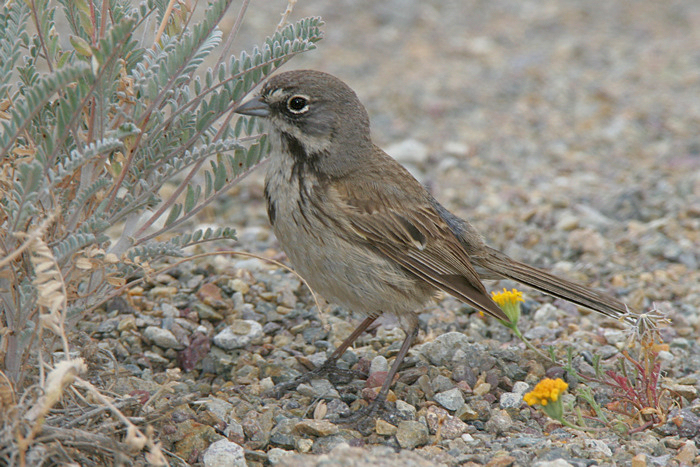
Date: 2007-06-02
Lens: Canon 600mm IS F4 + 1.4x II Converter

 Sage Sparrow
Amphispiza belli
Sage Sparrow
Amphispiza belli
 Description
DescriptionThere are currently five subspecies of Sage Sparrow. Four of the subspecies were once considered a separate species, called "Bell's Sparrow". The Sage Sparrow spends a lot of its time on the ground, foraging for seeds and insects. Often the bird can be seen running on the ground between shrubs, with its tail raised in the air.
Gray head. Brownish back, with dark streaks. White breast with streaks along the sides. White belly with dark central spot. Thin white eyering. White spot in font of eyes near base of bill. Large black and white mustache stripes. Grayish bill. Streaked wings with faint wingbars. Long, dark, white-edged tail. Dark grayish-brown legs and feet. Sexes similar. 5 to 6 inches in length.
Chaparral, sagebrush, and other open areas with shrubs.
 Nesting
Nesting2-6 pale blue eggs with dark brown and black markings. The eggs have a 12-16 day incubation period. Fledging occurs in 9-11 days. The nest an open cup made from twigs, bark chips and grasses, and is lined with grass, feathers and fur. The nest is placed in or under shrubs; usually less than four feet above the ground.